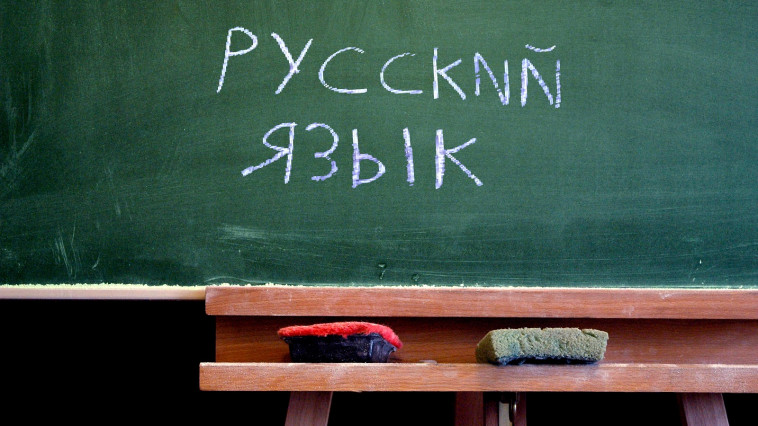Russia is up to the expansion of Russian language in the former Soviet states

Russian language should obtain legal status in countries of the former Soviet Union, said the ambassador with special missions of the Russian MFA, Eleonora Mitrofanova.
"Developing and strengthening the legal status of Russian language in the constitution and in the practice of our neighbors is a priority for us", news.ru quoted the words of the Russian diplomat.
In CIS countries, the Russian language has the status of "language of interethnic communication." This status has no clear legal interpretation and in the Baltic States, Georgia and Ukraine, Russian lost its status of interethnic communication as a result of state policy.
Russian Foreign Ministry is particularly concerned of the status of Russian language in Latvia and Estonia, where a considerable part of the population speaks Russian, and this is not reflected in the legislation in any way, TASS agency reports.
According to the UN statistics, in 2015, out of 138 million people living in CIS countries (except Russia), Russian is spoken by 61 million people, 36.9 million speak it passively and 35.6 million people do not speak Russian.
MFA of the Russian Federation intends to make special efforts to promote Russian language abroad - says Ambassador Mitrofanova - raising the issue in international forums. Earlier, Russian Foreign Minister Sergey Lavrov urged the development of Russian schools abroad, stressing that at least 260 million people who speak Russian are in the world.
This initiative has not been greeted enthusiastically by the partner states of the Russian Federation. Minister of Education of Armenia, Levon Mkrtchyan, ruled against changing the status of Russian language in the republic. According to him, the Russian language has the status of a foreign language, and this cannot be changed. "The state language in Armenia is the Armenian language. Law on Language is one of the core values of our independence and cannot be changed," Mkrtchyan said.
Azerbaijan explained vaguely that government policy supports the Russian language even without having adopted a special law. Minister of Education, Mikayil Jabbarov said that "90,000 students from 340 schools receive education in Russian, and more than 450,000 pupils study Russian language as a foreign language".
President-elect of the Republic of Moldova, Igor Dodon promised to keep the status of language of interethnic communication for Russian. "Knowledge of the Russian language for the Moldovans is a big advantage. No matter where the citizen is working - at home, in Italy or Russia. We must keep the Russian language," said Dodon.
For the expansion of Russian language in CIS countries, Russia is going to increase the quotas of free education for students from former Soviet states. The most talented of them will receive grants. Schools and universities in the Eurasian space that teach in Russian, will receive textbooks, audio and video materials, scientific literature in Russian. Russian language teachers will be sent in the CIS countries.
This was said by the speaker of the Federation Council, Valentina Matviyenko, within the Integration Club, dedicated to the education issues.














